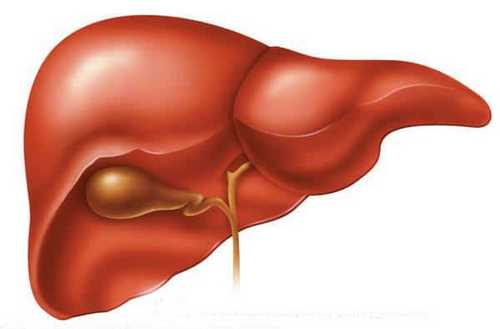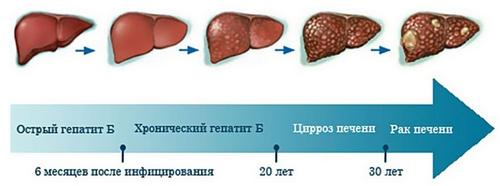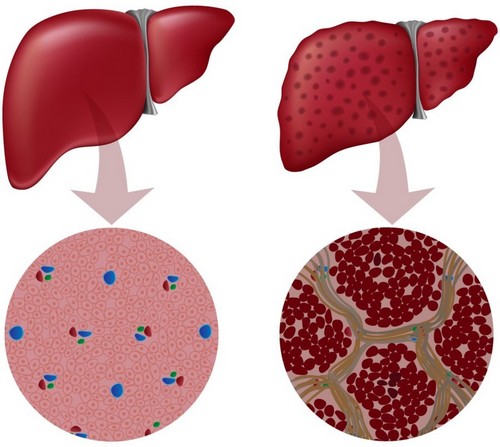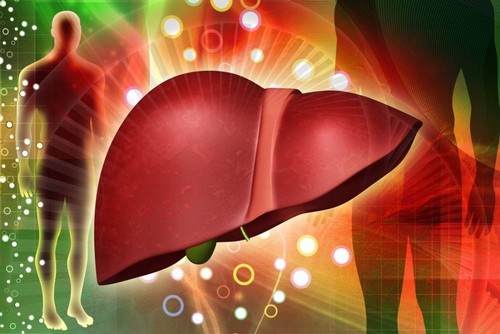Reactive hepatitis is a pathology related to liver inflammatory degenerative etiology. This disease begins to develop along with various pathologies of the digestive tract or connective tissue, intoxication, severe infection and other disorders.
Reactive hepatitis is considered to be secondary non-specific disease, but hepatitis of viral, alcoholic and drug-induced etiology refers to primary.
Simply put, this disease is a specific response of the body tissues caused by extrahepatic disease.
The causes of pathology
As described above, reactive changes of the liver relate to somatic processes. Under the influence of certain factors in the body begins a pathological process.
In the General case, causes the appearance of reactive hepatitis are:
- immune diseases the innate nature;
- disease of infectious etiology;
- disturbed endocrine system;
- diseases neurological;
- of cavity pathology of the gastrointestinal tract;
- diseases caused by allergic reaction;
- bronchial asthma;
- dermatitis, regardless of its origin.
However, not in each of these cases, there is such a reaction of the liver.

There are times when as causative agents of the disease are the following States and diseases:
- ulcerative forms of colitis;
- gallbladder disease;
- syndromes that occur after surgery;
- rheumatism;
- hemolytic anemia;
- thyrotoxicosis;
- diabetes mellitus;
- polyarteritis nodosa;
- systemic lupus erythematosus.
Changes in the parenchyma of the liver, which correlated with the viral disease, infectious etiologies of chronic, and the presence of bacteria, Leptospira and worming, can cause reactive changes in the liver. Surgery and Crohn’s condition are often the cause of reactive hepatitis, support the psychosomatic condition of the patient. Predominantly nonspecific reactive hepatitis develops along with the impact of toxic substances on the body, as well as an extensive burn of the skin.
Symptoms
The disease mostly occurs in the absence of symptoms, but patients may complain of the emergence of General weakness, rapid prealablement, strong irritability, loss of appetite, the signs of nausea and discomfort in the right hypochondrium.

Therapeutic interventions
The treatment will be carried out only in hospital. Professionals need to monitor changes in the level of liver enzymes. Hepatitis is a disease often leading to cirrhosis and liver failure. These reasons dictate their own terms – in the first place the failure of self-medication. Therapy should be conducted only by experienced professionals.
The therapy includes many medical measures, but the main ones considered to be:
- From organism of toxic products of origin.
- Observed a specialized diet and diet.
- Are prescribed medicinal drugs.
Originally recommended diet number 5, which provides for the reception of useful non-meat products that contain large amounts of vitamins and protein. Treatment is hampered by eating fried fatty foods, bitter, smoked and salted products.
To recover the cell membrane, given oral medications which have a vegetable origin. Such drugs include Silymarin, Legalon and Karsil. Can also be appointment Gepabene, which helps cells to remove toxic substances from the body, improving the activity of the cell membrane.
In addition, the treatment of reactive hepatitis involves the use of drugs of animal origin, for example, Hepatosan or Siremar. Thanks to the detoxifying and hepatoprotective effects begins the restoration of cellular structure.
Nonspecific reactive hepatitis is treated with essential phospholipids. Their components can be embedded in the lipid membrane layers of liver cells, regenerating them. The result is an increase in enzyme activity cell structure. Such drugs include Essliver and Essentiale Forte N. Cleansing the blood is due to the droppers with chelators and adsorbents.
Pathology in childhood
Reactive hepatitis in children usually has a benign course. The pathology the child begins to develop along with allergic reaction. In adults this is rare. The child should be afraid of diseases of the digestive system, chronic conditions with infectious and inflammatory etiology.
The disease is first hidden symptoms: there is a General malaise, appears fatigue, irritation gives way to aggressiveness, there are headaches, decreased appetite. May cause nausea and stool disorders. Often the skin itches, urine becomes dark and discolored feces.




Hello, i feel that i noticed you visited my weblog thus i came to “go back the favor”.I am attempting to find things to enhance my web site!I guess its ok to use a few of your concepts!!
Hello to all, how is all, I think every one is
getting more from this web site, and your views are
fastidious for new people.